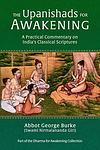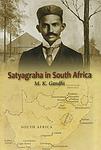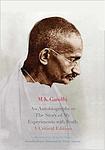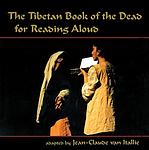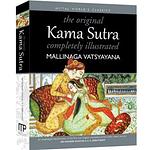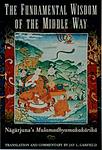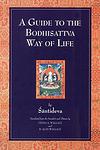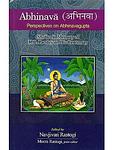The Greatest "India, Nonfiction" Books of All Time
Click to learn how this list is calculated.
This list represents a comprehensive and trusted collection of the greatest books. Developed through a specialized algorithm, it brings together 300 'best of' book lists to form a definitive guide to the world's most acclaimed books. For those interested in how these books are chosen, additional details can be found on the rankings page.
Genres
The "India" category for books encompasses a wide range of literature that explores the history, culture, and society of India. This includes works of fiction, non-fiction, and poetry that delve into the country's rich traditions, religions, and customs, as well as its political and economic landscape. From classic novels like "A Passage to India" to contemporary works that examine modern India, this category offers readers a diverse and fascinating glimpse into one of the world's most complex and captivating nations.
Countries
Date Range
Reading Statistics
Click the button below to see how many of these books you've read!
Download
If you're interested in downloading this list as a CSV file for use in a spreadsheet application, you can easily do so by clicking the button below. Please note that to ensure a manageable file size and faster download, the CSV will include details for only the first 500 books.
Download-
1. Das Kapital by Karl Marx
This influential work is a comprehensive critique of political economy, exploring the complex nature of capitalism, its production processes, and its societal impact. The book delves into the intricacies of commodities, labor theory of value, surplus value, and exploitation, arguing that capitalism is inherently unstable and prone to periodic crises. It also posits that the capitalist system ultimately leads to the concentration of wealth in fewer hands, causing social inequality and paving the way for its own demise. The book is widely regarded as a foundational text in the development of socialist and communist ideologies.
-
2. Upanishads by Hindu scripture
The book is a comprehensive compilation of ancient Hindu scriptures known as the Upanishads, which are fundamental to understanding the core philosophies of Hinduism. The text delves into profound spiritual teachings and philosophical dialogues about the nature of reality, the self, and the universe, providing invaluable insights into concepts such as karma, reincarnation, moksha, and the ultimate truth of existence. It serves as a guide to spiritual enlightenment and self-realization, offering timeless wisdom for introspection and personal growth.
-
3. The Great Railway Bazaar by Paul Theroux
"The Great Railway Bazaar" is a travelogue in which the author embarks on a four-month journey by train from London through Europe, the Middle East, the Indian subcontinent, Southeast Asia, and Siberia, and then back to Europe. The book is a vivid and insightful account of the people, cultures, landscapes, and experiences encountered during the journey, painting a unique picture of the world as seen from the perspective of a train window. The author's sharp observations and engaging storytelling make this journey as much an inner exploration as a geographical one.
-
4. Seven Years in Tibet by Heinrich Harrer
This book is a travel memoir that recounts the author's escape from a British internment camp in India during World War II and his subsequent journey through the Himalayas to Tibet, where he becomes a tutor and friend to the Dalai Lama. The book provides a detailed account of Tibetan culture, customs, and the political turmoil leading up to the Chinese invasion, as seen through the eyes of a foreigner who spent seven years living there.
-
5. Satyagraha in South Africa by Gandhi
This book is a personal account of the author's experiences during the Indian struggle for civil rights in South Africa. It details the development and implementation of the concept of Satyagraha, or non-violent resistance, as a means of combating social injustice. The book provides a unique insight into the author's philosophies and strategies of peaceful protest, including his belief in the power of truth and the necessity of self-sacrifice in the fight against oppression.
-
6. Bhagavad Gita by Unknown
The book is a 700-verse Hindu scripture that is part of the Indian epic Mahabharata. It takes the form of a dialogue between Prince Arjuna and the god Krishna, who serves as his charioteer. On the battlefield of Kurukshetra, just as the war is about to begin, Arjuna is filled with doubt and moral dilemma about fighting in the battle. Krishna imparts spiritual wisdom and guidance to Arjuna, addressing his concerns and leading him through a profound discourse on various philosophical concepts, including the nature of life, the soul, and one's duties. The text covers topics such as righteousness, devotion, and the paths to spiritual liberation, ultimately encouraging Arjuna to rise to his duty as a warrior with the understanding that the true self is eternal and beyond physical conflict.
-
7. Sapiens: A Brief History of Humankind by Yuval Noah Harari
This book provides a comprehensive exploration of the history of the human species, tracing back from the earliest forms of Homo Sapiens to the modern day. It delves into evolutionary biology, the development of cultures and societies, and the rise of major ideologies and technologies. The book also discusses the future of the species, posing thought-provoking questions about our roles and responsibilities in a rapidly changing world.
-
8. Man-Eaters of Kumaon by Jim Corbett
The book is a collection of true stories about the author's hunting experiences in India, specifically his encounters with man-eating tigers and leopards in the Kumaon region. The author, a renowned hunter, was often called upon to kill these man-eaters when they became a threat to local villages. The book provides thrilling accounts of his hunts, as well as his observations on the behavior of these animals and his respect for their power and cunning.
-
9. The Story Of My Experiments With Truth by Mahatma Gandhi
This book is an autobiography that details the personal journey of a prominent leader who played a key role in India's struggle for independence from British rule. It explores his philosophy of nonviolent resistance and truth, which he refers to as "Satyagraha," and traces his development from a young, unsure boy into a principled activist committed to social justice. The narrative delves into his experiments with diet, celibacy, and other personal challenges, reflecting his quest for self-improvement and moral integrity, which he believed were essential for political leadership and social reform.
-
10. The Strange Ride of Rudyard Kipling by Angus Wilson
"The Strange Ride of Rudyard Kipling" is a comprehensive biography that explores the life and works of the famous British author and poet, Rudyard Kipling. The book delves into Kipling's complex personality, his controversial political views, his relationships, and his creative process. It also provides a detailed analysis of Kipling's works, placing them in the context of the social and political events of his time.
-
11. The Tibetan Book of the Dead: Awakening Upon Dying by Padmasambhava, Karma Lingpa
"The Tibetan Book of the Dead: Awakening Upon Dying" is a spiritual guide that explores the stages of death and afterlife from a Tibetan Buddhist perspective. It provides instructions for the dying and the living, offering meditative and contemplative techniques to prepare for death, navigate the intermediate state (Bardo), and achieve liberation. The book serves as a manual for understanding the transition from life to death, making it less of a fearful experience and more of a conscious, spiritual journey.
-
12. Kama Sutra by Vātsyāyana
This ancient Indian text is a guide to virtuous and gracious living that discusses the nature of love, family life, and other aspects pertaining to pleasure-oriented faculties of human life. It is a comprehensive manual on the art of love and sexual behavior, providing detailed advice on courtship, marriage, and the act of lovemaking. The text, while often associated solely with sexual positions, covers a wide range of topics including the duties and privileges of a wife, advice for courtesans, and methods to attract others.
-
13. My Story by Kamala Das
"My Story" is an intimate memoir that delves into the life of a woman navigating the complexities of her existence in mid-20th century India. It candidly explores themes of love, marriage, and womanhood, as the author recounts her journey from a young girl to a renowned poet and writer. The narrative is marked by its honesty and emotional depth, addressing the author's unconventional choices and her search for personal freedom amidst the constraints of a traditional society. Her reflections on sexuality, fidelity, and the literary world offer a poignant look at the challenges faced by women in asserting their identity and creativity.
-
14. Behind the Beautiful Forevers: Life, Death, and Hope in a Mumbai Undercity by Katherine Boo
This book is a gripping narrative that provides an in-depth look into the lives of residents in a Mumbai slum, focusing on their struggles and aspirations. The author paints a vivid picture of the harsh realities of poverty, corruption, and inequality, while also highlighting the resilience and hope of the inhabitants. The narrative is a powerful exploration of the complexities of modern India, revealing the stark contrast between the country's booming economy and the grim living conditions of its underprivileged citizens.
-
15. Resources, Values And Development by Amartya Sen
"Resources, Values, and Development" is a comprehensive examination of the interplay between the availability of resources, the values that guide their use, and the resulting impact on development. The book challenges traditional economic measures of development, such as GDP, and argues for a broader understanding that incorporates human welfare and freedom. It delves into the role of ethics in economics, the importance of individual capabilities, and the need for equity in the distribution of resources. The author's influential ideas on development economics and social choice theory are presented, advocating for a more humane and inclusive approach to economic development that prioritizes the enhancement of human lives over mere economic growth.
-
16. The Fundamental Wisdom Of The Middle Way by Nagarjuna, Jay L. Garfield
"The Fundamental Wisdom of the Middle Way" is a philosophical text that explores the Buddhist concept of emptiness and the nature of reality. The work is a verse-by-verse commentary on the challenges and questions pertaining to conventional existence and ultimate truth, aiming to resolve the dichotomies and contradictions inherent in ordinary experience. Through rigorous argumentation and logical analysis, the text deconstructs the assumptions of inherent existence in phenomena, proposing instead that all things exist interdependently. This exposition not only deepens the understanding of Buddhist philosophy but also offers insights into the nature of suffering and liberation.
-
17. A Guide To The Bodhisattva Way Of Life by Santideva
"A Guide to the Bodhisattva Way of Life" is a profound text that explores the path of the bodhisattva, an individual who seeks enlightenment not only for themselves but also for the benefit of all beings. Written in the form of a long poem, the book delves into the practice of developing bodhicitta, the mind of enlightenment, characterized by the desire to liberate all beings from suffering. It offers practical advice on how to cultivate virtues such as patience, diligence, and meditation, emphasizing the importance of compassion and selflessness. The text serves as both a philosophical guide and a practical manual for those aspiring to live a life of deep altruism and spiritual development.
-
18. Abhinavagupta by Abhinavagupta
This book delves into the life and teachings of Abhinavagupta, a seminal figure in Indian philosophy and aesthetics. A scholar from the 10th century Kashmir, Abhinavagupta made significant contributions to the fields of philosophy, mysticism, and the arts. The text explores his works and thoughts within the framework of the non-dual Shaivism of Kashmir, highlighting his theories on aesthetics, particularly the concept of rasa in drama and literature. It provides a comprehensive analysis of his philosophical system, which integrates elements of Tantra, Krama, and Trika philosophies, offering insights into his profound understanding of human consciousness and the divine.
-
19. The Padārthatattvanirūpaṇam Of Raghunātha śiromaṇi by Karl H. Potter
"The Padārthatattvanirūpaṇam of Raghunātha Śiromaṇi" is a critical examination and translation of a seminal work in Indian philosophy by Raghunātha Śiromaṇi, who was a prominent figure in the Navya-Nyāya school. This book, authored by Karl H. Potter, provides an in-depth analysis of Raghunātha Śiromaṇi's thoughts on metaphysics, focusing on the nature of reality and categorization of existence. Potter's work not only translates the original text but also contextualizes it within both historical and philosophical frameworks, offering insights into the development of Indian philosophical thought and its intricate argumentative techniques.
-
20. Gadādhara's Śaktivāda by Gadādharabhaṭṭācārya
"Gadādhara's Śaktivāda" is a philosophical treatise that delves into the intricate theories of meaning, epistemology, and logic within the classical Indian Nyāya tradition. The work primarily focuses on the concept of Śakti (potency or power) as the fundamental principle explaining the relationship between words and their meanings. Gadādhara, a prominent scholar, expands upon the Nyāya school's perspective by rigorously analyzing how knowledge is derived from verbal testimony and the conditions under which words convey particular meanings. His analysis not only addresses previous interpretations by earlier philosophers but also introduces novel viewpoints to resolve longstanding debates about linguistic and cognitive processes.
-
21. May You Be The Mother Of A Hundred Sons by Elisabeth Bumiller
This book offers a poignant exploration of the lives of women in India, delving into the complexities of their roles in a society marked by stark contrasts and contradictions. Through a series of vivid narratives and personal stories, the author paints a multifaceted picture of the challenges and triumphs faced by Indian women, from the constraints imposed by traditional customs to their efforts in seeking empowerment and equality. The work reflects on themes of marriage, motherhood, and the cultural significance of bearing sons, while also examining the evolving landscape of women's rights and the impact of economic and social change in India.
-
22. Development As Freedom by Amartya Sen
The book in question is a seminal work in the field of economics and development studies, which argues that true development is best understood as the process of expanding the real freedoms that people enjoy. It challenges traditional indicators of growth, such as GDP, suggesting that they fail to capture the essence of human well-being. Instead, it posits that development should be assessed by the range of choices available to individuals, including access to education, healthcare, and the ability to participate in the economic and political life of society. The author emphasizes the interdependence of various types of freedoms, from political rights to economic opportunities, and the role they play in empowering people to live the lives they value.
-
23. Slowly Down The Ganges by Eric Newby
This travelogue recounts the author's adventurous journey down the Ganges, one of the great rivers of the Indian subcontinent. With humor and keen observation, the narrative captures the diverse landscapes and vibrant cultures encountered along the riverbanks. Through a series of mishaps, challenges, and encounters with local inhabitants, the author paints a vivid picture of life in India, reflecting on its history, religion, and the profound significance of the river to the people who live along its course. The book is as much a personal quest as it is an exploration of a place and its people, offering insights into the complexities of a rapidly changing country while navigating the waters of one of its most sacred rivers.
-
24. An Area Of Darkness by V. S. Naipaul
The book is a travelogue that delves into the author's journey through India, a country that is both his ancestral homeland and a place of discovery for him. Through a series of vivid observations and encounters, the narrative explores the complexities, contradictions, and profound cultural richness of India. The author grapples with the legacies of colonialism, the challenges of modernity, and his own personal search for identity. The text is characterized by its introspective and often critical perspective, offering a portrait of a nation at a crossroads and a writer's quest to understand his own heritage.
-
25. Gandhi: An Autobiography by Gandhi
This autobiography recounts the life of a prominent leader who played a pivotal role in India's struggle for independence from British rule. Through his philosophy of nonviolent resistance, he inspired movements for civil rights and freedom across the world. The book details his early life, educational experiences, and the development of his political and ethical views. It also explores his efforts to promote peace and justice, highlighting his belief in simplicity and his commitment to various social causes. The narrative provides an intimate look at his challenges, motivations, and the personal philosophy that shaped his actions and legacy.
Reading Statistics
Click the button below to see how many of these books you've read!
Download
If you're interested in downloading this list as a CSV file for use in a spreadsheet application, you can easily do so by clicking the button below. Please note that to ensure a manageable file size and faster download, the CSV will include details for only the first 500 books.
Download
